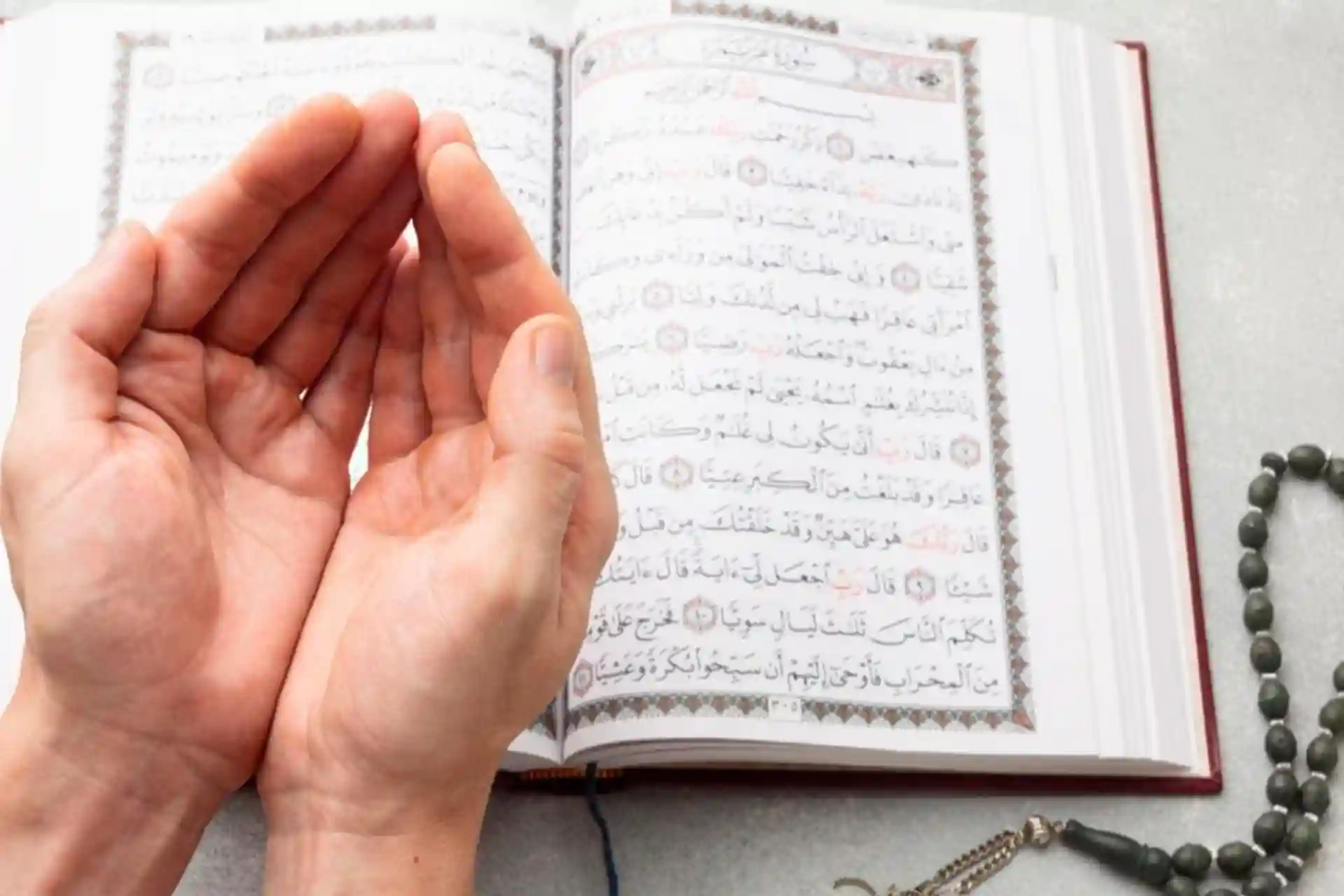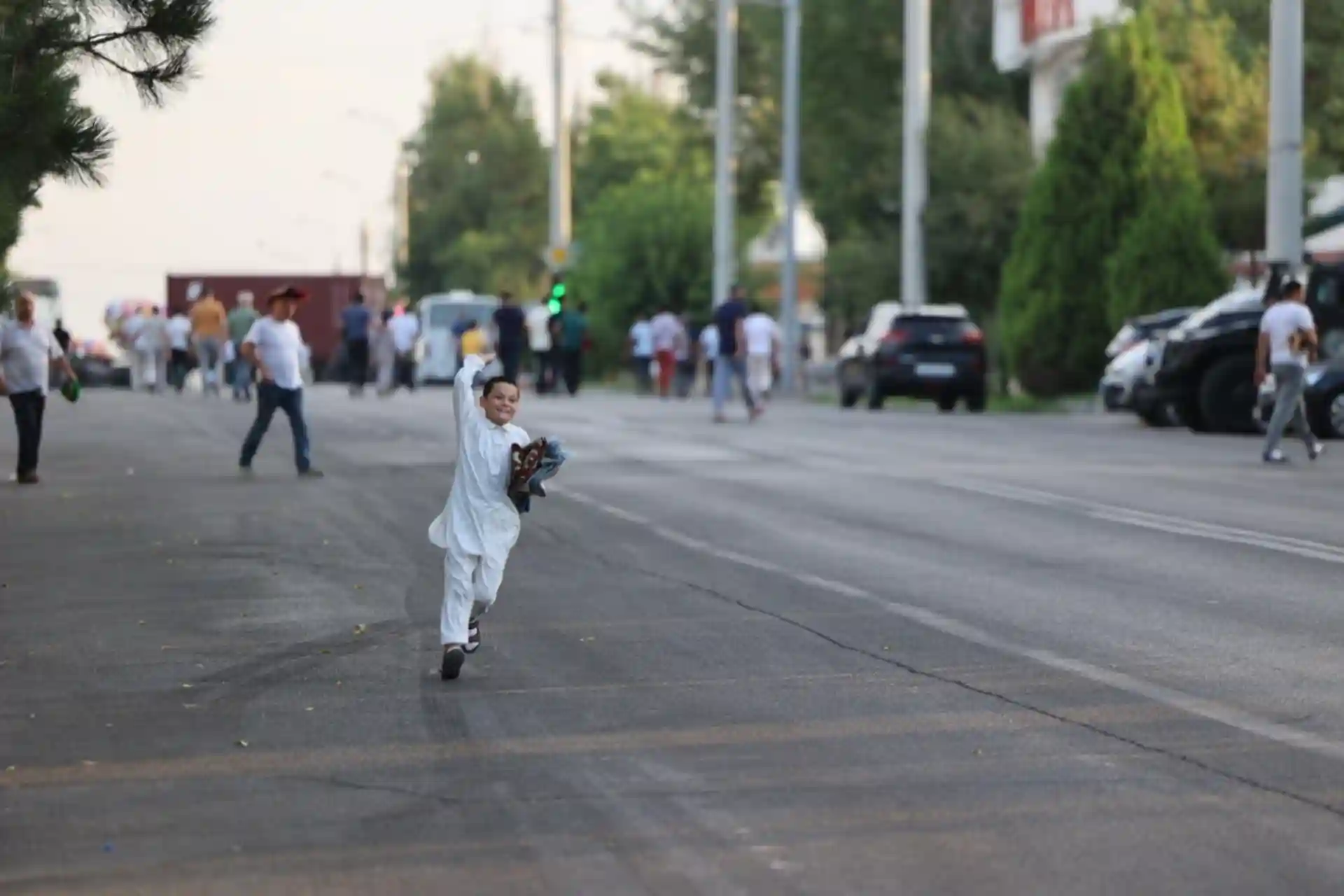"Aren't you tired of fasting?"
We are in blessed days, every moment of which is bathed in the rays of mercy, blessings, and forgiveness. Ramadan is a thirty-day holiday for a true Muslim believer. Our older brothers and sisters, when asking about their well-being, greet us with the words, “May your great days be blessed!” It is not difficult to understand the value and responsibility of the month of Ramadan from this greeting. Thankfully, the number of those fasting and entering into worship is increasing year by year. In particular, the increasing number of young people, even young children, among those fasting, is heartwarming. At this point, a fair thought arises; does every believer entering into the worship of fasting understand the essence and responsibility of this worship? Do we know that fasting is an obligatory worship for Allah alone, for the education of the soul and body, for abstaining from sins, and for purification?
There is a narration about the establishment of fasting as follows: Allah created the intellect and said to it: "Turn forward." It turned. Then He said: "Turn back." It turned again. Then Allah asked: "Who are you and who am I?" The intellect said: "You are my Lord, and I am Your weak servant." Then Allah said to the intellect: "I have not created a creature more honorable than you." Then Allah created the soul and said to it: "Turn forward," but it did not obey. Then Allah said: "Who are you and who am I?" The soul replied: "I am I, You are You." Then Allah tormented it for a hundred years in the fire of Hell. Then He brought it out of Hell and said: "Who are you and who am I?" The soul replied as before. Then Allah tormented it for a hundred years in the fire of hunger. Only then did the soul acknowledge that it was a slave and repented to its Lord. For this reason, Allah Almighty made fasting obligatory upon the soul."
Prayer expressing gratitude for blessings
Allah Almighty says in the Holy Quran: “O you who have believed! Fasting is prescribed for you as it was prescribed for those before you, that you may become righteous . ” (Surah Al-Baqarah, verse 183) Also, the verse: “So whoever of you is present during it (in his place of residence) , let him fast it” is another evidence for the obligation of fasting Ramadan.
Abu Imam al-Bahili (may Allah be pleased with him) said: I heard the Messenger of Allah (blessings and peace of Allah be upon him) say in the sermon of the Farewell Pilgrimage: “Fear Allah, perform your five daily prayers, fast for a month, give zakat on your wealth, and obey your rulers, and you will enter the Paradise of your Lord .” (Narrated by al-Tirmidhi)
Therefore, fasting is a means of expressing gratitude for blessings. Because fasting is the abstinence from eating, drinking, and sexual intercourse, which are the most valuable and necessary of blessings, and a person who abstains from these blessings for a certain period of time begins to appreciate them. Because the value of a blessing is only known when one is deprived of it. This causes a person to be grateful for the blessing. Being grateful for the blessing is both intellectually and legally obligatory.
Spiritual and physical purification
Fasting is a special act of worship between the servant and his Lord. Allah Almighty said that the reward for fasting is for Him alone, meaning: "Fasting is for Me. I will reward it." Because fasting, like other acts of worship, is not an act that is visible to humans and known to everyone. No one can see it except Allah. For this reason, Allah Almighty informed us that the reward for this act is for Him alone.
It was narrated from Abu Hurairah (may Allah be pleased with him) that the Messenger of Allah (blessings and peace of Allah be upon him) said: “Everything has a zakat, and the zakat of the body is fasting.” As is known, the meaning of zakat is purification. Therefore, by fasting, a person cleanses his body of excess and harmful substances, and his morals are cleansed of harmful habits and behaviors. This is because restraining the limbs from committing sinful acts is one of the main conditions for fasting to be acceptable.
Who is fasting?
– A fasting person is one who restrains his body parts from sin.
– A person who keeps his tongue from lies, obscenities, and falsehoods.
– A person who protects his stomach from food and drink, and his vagina (genital organ) from sexual intercourse.
– If he speaks, he will not say anything that will break his fast.
– If something breaks the fast, he will not perform it.
– All your words will be beneficial and useful.
– Also, everything he does exudes such a fragrance that the person he is talking to enjoys his scent.
– Whoever sits with a fasting person will benefit from his conversation.
– The person sitting will be safe from falsehood, lies, corruption, and oppression.
This is true fasting, which does not just involve abstaining from food and drink.
Fasting is the abstinence of the members from sin.
It is the abstinence of the stomach from food and drink.
Just as food and drink break the fast, sins also deprive one of its rewards and negate its benefits. As a result, they include one in the ranks of those who do not fast.
Health benefits
Medical and scientific research has shown that fasting protects against and is beneficial in preventing various physical and mental illnesses. For example:
- fasting strengthens a person's immunity against diseases;
- A fasting person has a barrier against obesity;
- fasting prevents the formation of kidney stones;
- Fasting helps cleanse the human body and its tissues of various toxic substances that accumulate. Many toxic substances enter the human body through food, medicines, and air. These substances are only eliminated through fasting.
Also:
- in the treatment of narrowing of blood vessels caused by obesity, increased blood pressure and heart disease;
- in the treatment of circulatory diseases;
- has been found to be useful in treating chronic joint swelling.
How are we fasting?
We have tried to provide information about the spiritual and material benefits of fasting as much as possible. Now, let us examine ourselves, contemporary. What kind of fasting person are we? Are we not undermining our worship with our intentions and actions? Are we fasting for the sake of Allah alone, hoping for His reward? Are we not spending the day hungry and thirsty, using our accustomed tongue to gossip? Are we not frowning and walking around in a bad and tired state due to the hardships of sleeplessness, hunger and thirst, and pretending to fast? When we meet acquaintances and friends during the blessed month of Ramadan, when we communicate on social networks, we ask each other, “Aren’t you tired of fasting?” Isn’t this kind of kindness like blaming Ramadan and fasting? Are we not depriving our children of their sustenance under the pretext of breaking the fast? Are we not seeking reward from afar and thus depriving ourselves of the reward that is sufficient to enrich our two worlds that are so close to us? Every morning at dawn, we say, “I intend to fast the month of Ramadan from dawn to sunset for the sake of Allah alone. Allah is Great!” and then deny it with our actions? Are we not forcing ourselves to observe the act of fasting for the sake of tradition, diet, and some other “authority”? Think about it, contemporaries, the purpose of fasting is piety. The true essence of fasting is to express gratitude for blessings by feeling the plight of the hungry and naked, the needy and the poor, and to be close to Allah by enjoying the sweetness of faith and worship. How do we understand it and how can we fulfill it?
May the sweetness of Ramadan continue to be with those who are not ashamed of themselves or their conscience when faced with these questions, and whose hearts and faces are bright in the presence of their Lord! May the religious delight of fasting not leave you in both worlds!
Umida ADIZOVA



